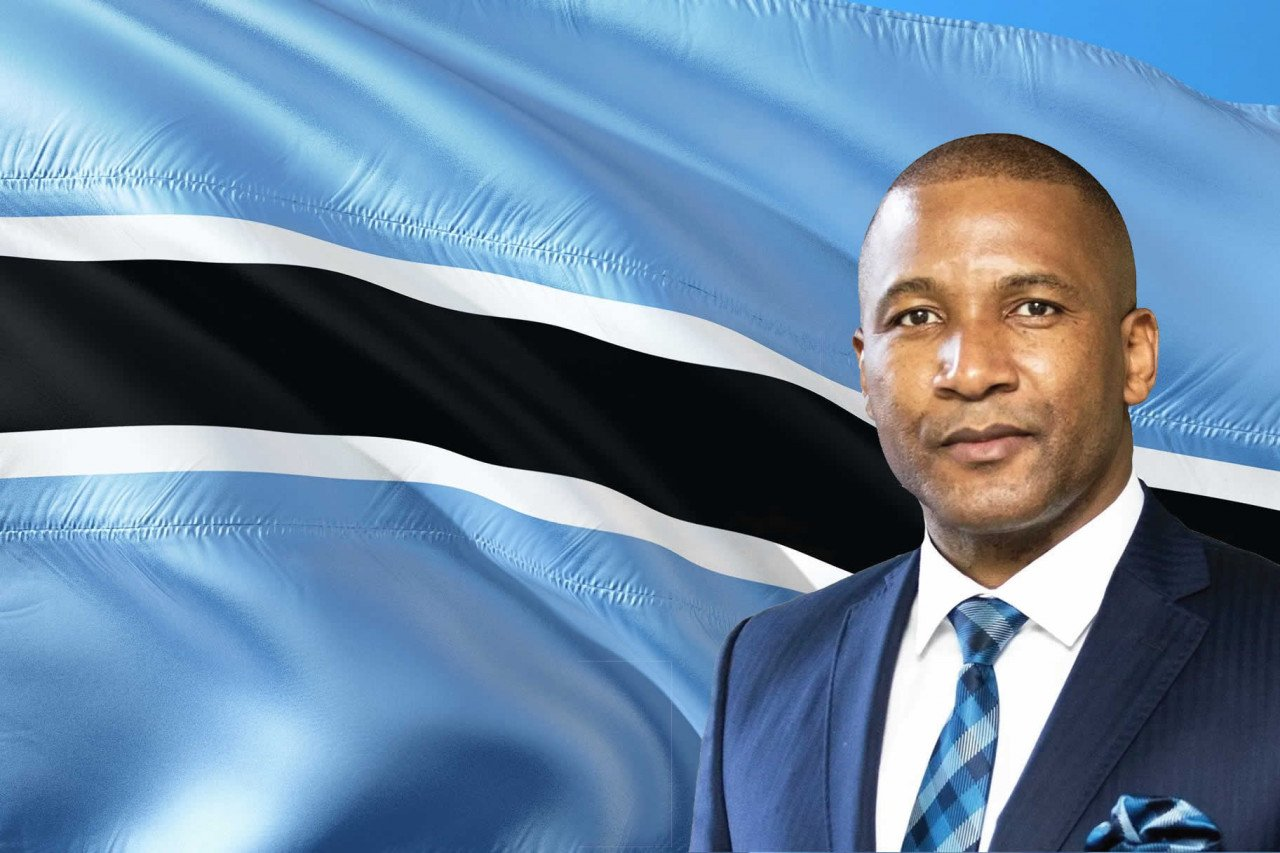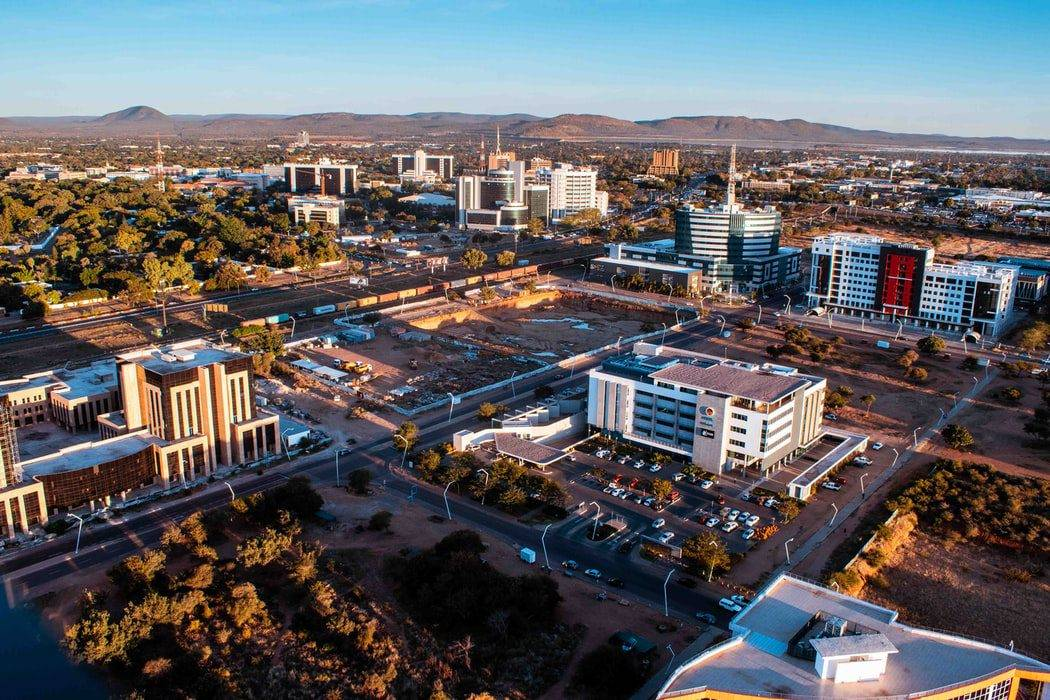Botswana has long been known for its diamond industry. Diamonds have been a main source of income, export revenue, and state funds. But recently, global demand and prices have fallen, and that has hurt Botswana’s economy. In 2024, the country’s GDP shrank by about 3%.
To reduce reliance on diamonds, the government has introduced several strategies. One of the newest is a citizenship-by-investment (CBI) program (sometimes called “impact investment citizenship”).
 President of Botswana: H.E.
Duma Gideon Boko
President of Botswana: H.E.
Duma Gideon Boko
What Is the Citizenship-by-Investment Program?
Here’s how Botswana’s plan works (what is known so far):
- It is being developed in partnership with Arton Capital, a firm that helps design and manage programs of this kind.
- The program is expected to open in early 2026.
- There will be a minimum investment needed to qualify. Reports suggest it will be in the range of US$75,000 to US$90,000.
- The program will be under a limited quota system, meaning not everyone who applies will be accepted immediately; there may be caps or constraints.
- Money raised via this program is to be directed to sectors such as housing, tourism, renewable energy, mining, financial services, areas which the government sees as key to its future economic growth.
So essentially, Botswana is inviting foreign investors to contribute capital, in exchange for citizenship, and then using those investments to build or strengthen non-diamond parts of its economy.
 Image by weetracker
Image by weetracker
What Are Botswana’s Strategy Implications on AfCTA?
To fully understand the future implications, we need to know about AfCFTA:
- AfCFTA stands for the African Continental Free Trade Area. It is a trade pact among many African countries designed to reduce or eliminate tariffs between members, simplify trade rules (like rules of origin), improve market access, and boost trade inside Africa. This offers large markets and opportunities.
-
Some specific actions Botswana is taking:
- Joining the AfCFTA Guided Trade Initiative (GTI) to help local firms get access to continental trade.
- Developing its private sector’s readiness (SMEs, exporters) so that citizens, companies, entrepreneurs can take advantage of the free trade area.
- Enhancing infrastructure (trade corridors, ports, roads) to reduce costs for moving goods regionally.
How the Citizenship-by-Investment Programme Could Interact with AfCFTA
These two developments (CBI and AfCFTA) aren’t separate; they can reinforce one another. Here’s how:
Potential Opportunities
-
Attracting Investment that Supports Export-oriented Industries
The CBI program brings in foreign capital. If that capital goes into sectors that can export goods or services to other African countries (e.g. manufacturing, agro-processing, renewable energy exports), Botswana can take advantage of AfCFTA’s large market. -
Building Capacity and Infrastructure
Funds from the CBI can help pay for infrastructure improvements (ports, roads, power) which are essential to actually use the AfCFTA benefits. If goods cannot move reliably, lower tariffs won’t help. -
Diversification
One of the goals is to diversify away from diamonds. AfCFTA rewards countries that can offer goods and services beyond raw materials. If Botswana uses CBI funds wisely to build capabilities, local firms can scale up and access regional demand. -
Creating Jobs & Enabling SMEs
More sectors growing means more jobs. Small and medium businesses may gain from both new investment and easier access to African markets. -
Attracting Talent
CBI often comes with skilled individuals or investors who bring not just money, but know-how, networks, technology. These skills could enhance competitiveness in sectors where Botswana wants to grow.
Potential Challenges & Risks
-
Quality and Type of Investment
Not all investment is equally useful. If investors just buy property or passive financial assets, and little work is done locally to build industries or employ locals, the impact may be limited. -
Regulatory and Governance Concerns
Ensuring that citizens-by-investment do not lead to abuse (money laundering, corruption), or that rules are transparent, fair, and enforceable. -
Competition with Other Countries
Other African nations also want foreign investment and are competing for capital. To attract good investment, Botswana must offer stable, efficient regulations, infrastructure, and incentives, etc. -
Risk of Overdependence on CBI Revenue
There is a danger that governments start relying on citizenship fees rather than building sustainable industries, possibly losing incentive to push structural economic reforms. -
Ensuring SMEs and Local Firms Benefit
It’s often harder for small firms to access trade finance, meet compliance or quality standards, or scale up. If they are left behind, the benefits of AfCFTA plus investment may accrue only to larger, foreign or well‐connected companies. -
Tariff Revenue Loss / Fiscal Risks
As Botswana integrates more with AfCFTA and reduces tariffs, revenue from trade tariffs may drop. Botswana has also been part of SACU (Southern Africa Customs Union), which has provided revenue. Shifts could strain budgets unless the state replaces those revenues or adapts fiscal policy.
Future Trends: What We Might See
Putting it all together, here are probable future trends and suggestions:
| Trend | What Might Happen |
| Growth of Non-Diamond Exports | Botswana may start exporting more manufactured goods, processed agricultural products, tourism services, and possibly renewable energy or energy services. AfCFTA gives a large customer base. |
| Rise of Impact-oriented Investment | Investors interested in environmental, social, governance (ESG) impact may see Botswana as attractive, especially if CBI is tied to projects in renewable energy, housing, and sustainable tourism. |
| More Regional Integration | Botswana will likely increase its trade with neighboring and farther African countries, through corridors, cross-border investment, and supply chains. Participating in regional value chains will become more important. |
| Shifts in Fiscal Policy & Revenue Sources | As diamond revenues decline further, and if tariffs fall under AfCFTA, government may rely more on other taxes (value added tax, corporate taxes), revenue from investments, fees, or dividends from sovereign wealth fund or state investments. |
| Increased Infrastructure Spending | To benefit from AfCFTA and to support investment, Botswana may invest more in logistics, roads, energy, internet connectivity, customs facilities. |
| Stronger Legal/Regulatory Frameworks | For both attractiveness and protection, Botswana may refine its laws around citizenship, investment protection, investor rights, transparency, anti-corruption, border trade regulation. |
| SME and Youth Opportunities | If policies are inclusive, young entrepreneurs and small businesses could participate more in export markets, possibly in light manufacturing, digital services, tourism. Focus may increase on skills training, finance access. |
How AfCFTA Strengthens or Reinforces the Strategy
- Market Access: With over 1.3 billion people in the AfCFTA area, Botswana gains access to a huge market. Exports can scale up; economies of scale become possible.
- Lower Costs: Reduced tariffs, simplified customs, and better transport networks reduce the cost of inputs and the cost of selling to other African countries. This makes Botswana more competitive.
- Value Chains: Botswana can plug into regional value chains instead of just supplying raw diamonds. For example, processing, refining, other minerals, and agro-processing.
- Attractiveness to Investors: Investors are more likely to invest in places where trade is easier, predictable, and where goods and services produced can access regional markets. CBI could help bring in such investors.
Botswana’s new citizenship-by-investment programme is more than a way to raise money. It’s a signal of a big strategic shift. The country is trying to position itself for a future where diamonds are less central, and where broader sectors—tourism, housing, renewable energy, and financial services—can help drive growth.
AfCFTA amplifies the opportunity by giving Botswana access to large markets, better trade terms, and incentives for export growth. But turning opportunity into reality will require careful planning, strong institutions, smart investment, and inclusive policies.
If Botswana does this well, it could become a case study in how a resource-rich country can transition toward a diversified, resilient economy, benefitting both its citizens and its place in a more integrated Africa.